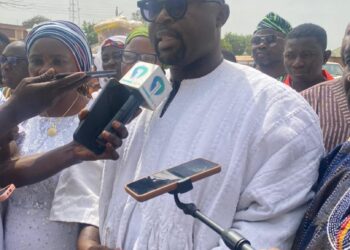A recent study conducted by CARITAS Ghana has unveiled a concerning lack of awareness regarding the Legal Framework and Processes for Land Acquisition among some community members in the Savanaah Region.
Particularly striking is the case of Babator, a community situated in the St. Anthony of Padua Parish, Bamboi, in the Damongo Diocese, where a staggering 81.8% of residents remain unaware of the intricate legal aspects surrounding land acquisition.
CARITAS Ghana, in collaboration with Alliance for Food Sovereignty in Africa (AFSA), undertook this survey with the primary goal of establishing a foundation for understanding land ownership and acquisition in four selected communities in Ghana.
Their intention is to raise public awareness and advocate for changes in land administration. The study encompassed Tanchara in the Wa Diocese (Upper West Region), Babator in the Damongo Diocese (Savannah Region), Breweniase in the Jasikan Diocese (Oti Region), and Subinso in the Koforidua Diocese (Eastern Region).
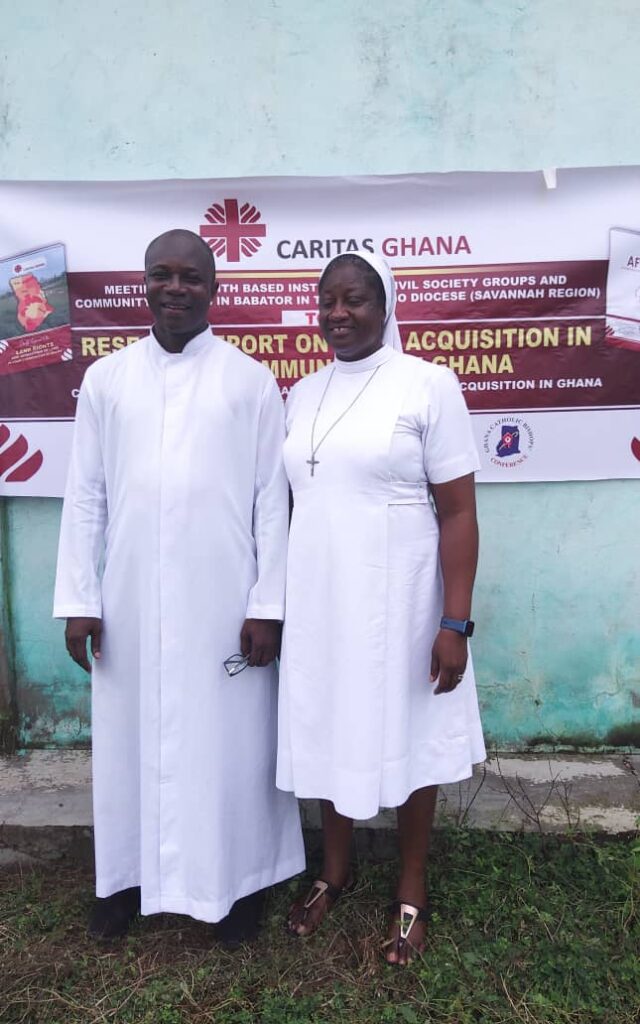
In a durbar of chiefs and traditional authorities, and key stakeholders in Babator, the Diocesan Development Coordinator, Rev Fr Sylvester Kuubetersuur, indicated that the purpose of the durbar was to share a report that was generated from a data collection in the community a year ago.
In an exclusive interview with Sr. Regina Ignatia Aflah, the Chairperson of CARITAS Ghana, she expressed that the report aligns with a call to care for the Earth as a common home, echoing the mission of CARITAS Ghana in collaboration with the Alliance for Food Sovereignty in Africa (AFSA).
The study also focused on the disparities between men and women in land acquisition, revealing a troubling trend where women are often excluded from land acquisition, limiting their economic opportunities.
Shockingly, many respondents in Babator data collection survey reported not knowing any female landowners in their communities.
Mr. Noel M. Tuotir, the Regional Director for the Lands Commission in the Savanaah Region, expressed concern over these disparities, and revealed that between 2021 and September 2023, only 4 women in the Savannah Region had registered their lands, out of 109 land registration documents processed, representing a mere 3.6%.
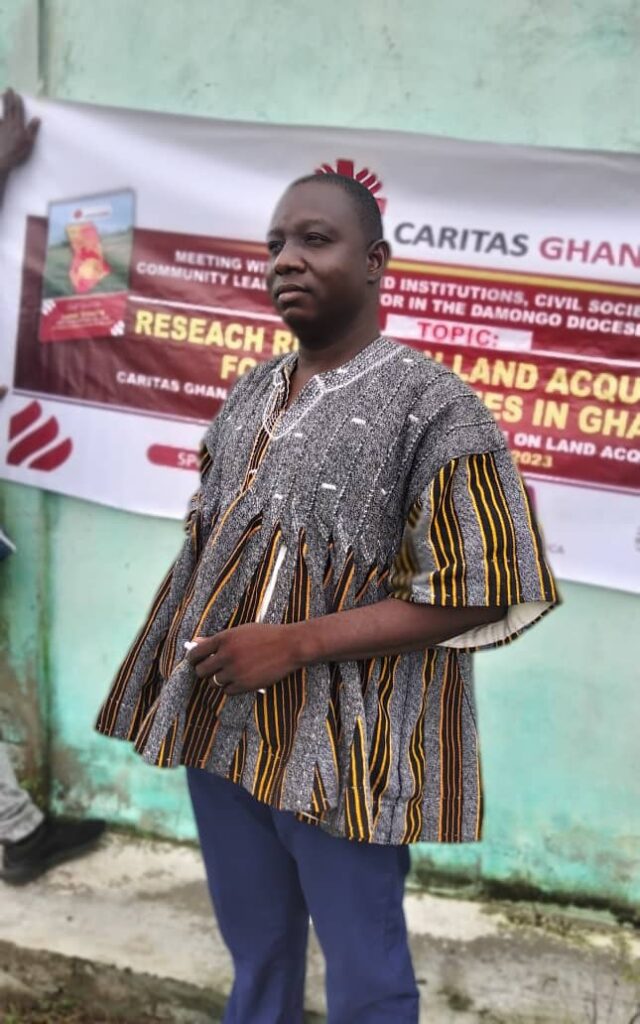
In contrast, 77 men (70.6%) and 8 couples (7.3%) registered land, while organizations accounted for 20 registrations (8.5%).
Despite his commendation for CARITAS Ghana’s efforts, he lamented the inadequate funds available for public awareness campaigns, particularly in remote communities, which hindered land registration efforts.
The Chairperson for CARITAS Ghana stated that after the data was collected in the community, there is a need to bring back and share the report, and encourage women in Babator in particular to see the importance of owning land through legal processes.
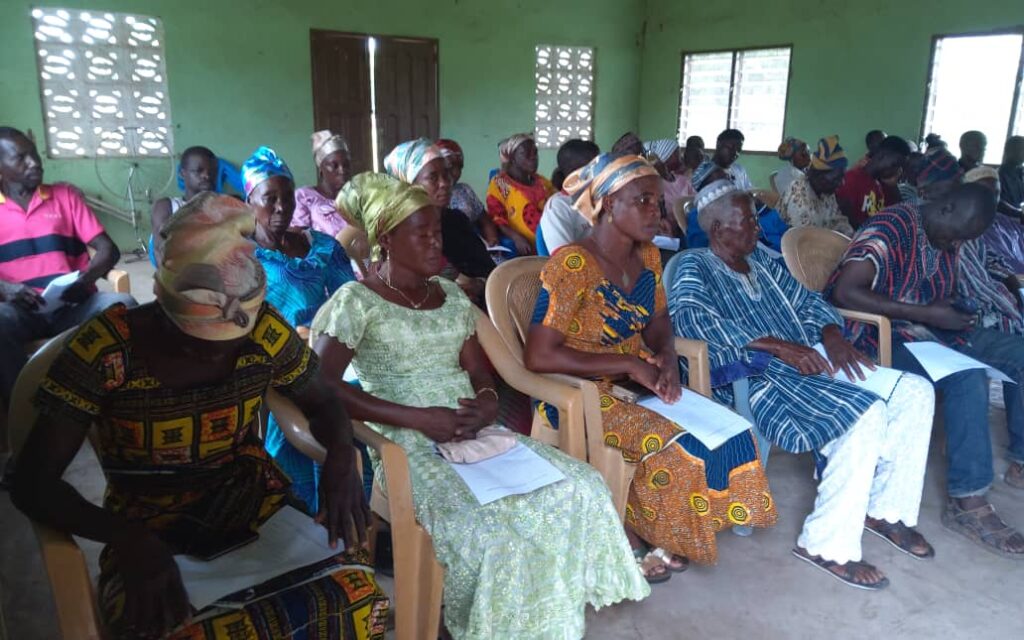
She also Admonished community members to take girl child education seriously and avoid early marriages.
Hon. Malik Fatawu, the Assemblyman for Babator, expressed gratitude to CARITAS Ghana for their efforts.
He acknowledged that many community members were unaware of the policies and regulations governing land, leading to the leasing of over 10,000 hectares of farmland in Babator to an investor, which has left many community members dissatisfied.
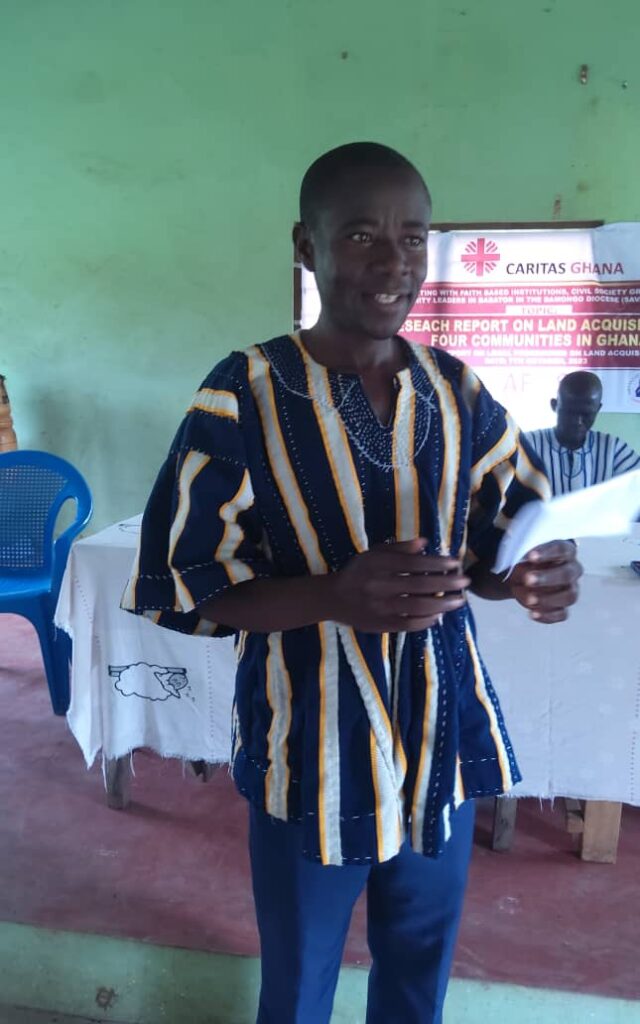
The major issue, according to Hon. Malik Fatawu, is the lack of land documentation among community members, which can also largely be attributed to the distance between communities and the relevant officials responsible for land documentation.
Key Findings:
A striking 81.8% of respondents in Babator lacked knowledge of land frameworks and land acquisition processes.
Most people in these communities sought land for farming purposes. Participants from Babator expressed concerns, particularly regarding challenges women face in land acquisition.
Recommendations:
The report recommends heightened education and sensitization on land rights, proper land documentation, and registration.
It also calls for a clearer definition of the roles of chiefs in land and landed property allocation and purchases, as well as the establishment of ethical codes of conduct for chiefs in land management by the regional houses of chiefs.
The report which was launched with support from the Alliance for Food Sovereignty in Africa (AFSA), underscored the collective power of faith-based and non faith-based actors in addressing land rights, land acquisition, and food sovereignty issues in Ghana.
CARITAS Ghana remains committed to implementing the decisions and policies of the Ghana Catholic Bishops Conference for the integral human development of the people of God.
As this eye-opening study reveals, there is much work to be done to ensure that all community members, regardless of gender, have the knowledge and access needed to secure their land rights in Ghana’s Savannah Region.
Source: Padfm.com.gh/Gogu Edwin
















